The views expressed in our content reflect individual perspectives and do not represent the authoritative views of the Baha'i Faith.
I don’t know who I’d be — or if I’d still even be here — without poetry.
When I was in high school, I experienced depression, and writing poetry became my therapy and outlet. It enabled me to find my voice and empowered me to speak out against the racism I experienced and the resulting emotional trauma. I was also mourning a loved one’s death, so my poetry also gave me solace and clarity.
RELATED: Collateral Beauty: the Silver Linings in Tests, Loss, and Grief
Abdu’l-Baha, the authorized interpreter of the Baha’i writings, and the son of Baha’u’llah, the prophet and founder of the Baha’i Faith, said, “All art is a gift of the Holy Spirit.” When this light of the Holy Spirit shines “through the mind of a poet, it is seen in fine poetry and poetic prose.”
As I recorded my pain in each rhythm and rhyme, the burden in my heart got lighter over time. The skill to write poetry, to create beauty from pain, is one of the greatest gifts that God could have ever given me. It is a witness to my story and a constant remedy for my mental, emotional, and spiritual healing.
RELATED: Black Women, Poetry and Radiance
And I know I’m not the only one who has been healed by poetry. As Abdu’l-Baha said, “Poetry is much more effective and complete than prose. It stirs more deeply, for it is of a finer composition.”
So, in honor of National Poetry Month, I reached out to two fellow poets, Andréana Lefton, and my mother, Barbara Talley, who have also witnessed the power poetry has to stir and heal the hearts and souls of those who write and hear it.
Andréana’s Story of Healing Through Poetry
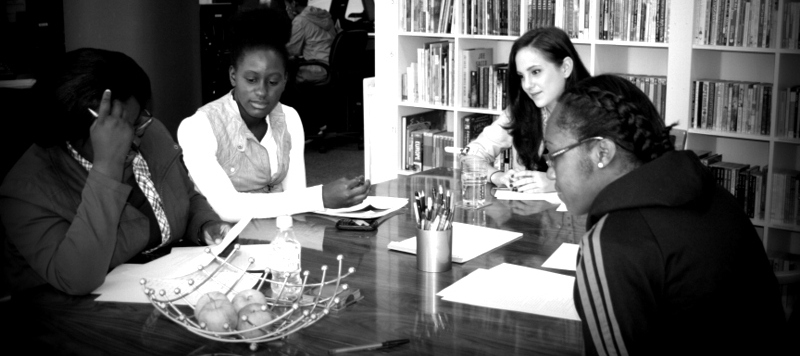
Like me, Andréana grew up writing poems and stories. But it wasn’t until she was 19, and a pivotal moment happened in her life, that she started to take writing poetry more seriously.
“I’d really been struggling with my own health, and I took some medical leave from college,” Andréana says. “And it was really that year of soul-searching — healing my body and my mind” that led her to poetry.
At the time, she was “looking out at the world and seeing global warming and poverty and abuse of women and degradation of women.” She says, “If you’re at all sensitive, you’re questioning: What are we doing to each other? What are we doing to the Earth?”
RELATED: Life, Re-forged in Poetic Terms
But when her dear friend and poetry mentor told her, “I believe you will write yourself well,” Andréana “really took that to heart.”
She says she thought, “Words do have power. And if they have the power to hurt or to destroy, they also have the power to heal and to create. And how much more so if the words are infused with the vibrations of the revelation of God? The Bible inspired Shakespeare and Virginia Woolf and all of these tremendous writers for hundreds and hundreds of years, and now, we have this whole fresh infusion of divine language that we can draw upon.”
One quote from Baha’u’llah that Andréana often draws upon is:
Every word of thy poetry is indeed like unto a mirror in which the evidences of the devotion and love thou cherishest for God and His chosen ones are reflected…Its perusal hath truly proved highly impressive, for it was indicative of both the light of reunion and the fire of separation.
The guidance by Baha’u’llah about poetry reflecting both “the light of reunion and the fire of separation” is the dominant theme of the book Andréana published last year. It’s about the death of her mother, but also the reunion of their souls and the joy that they will have together throughout eternity.
“My mother had such a passion for supporting women and children and making sure that part of the human race was cared for, was loved, was empowered, [and] was strong. And so, for me, hearing the truth in women’s hearts, that inspires me to write,” Andréana says.
She also says it was moving to read the poetry of Baha’u’llah’s friend and cousin Maryam, who used her poetry to express “her anguish at her separation from Baha’u’llah [and] her hope at reunion with him.”
“Poetry, to me, was like my testing ground where I could put all the pain and all the rawness and all the trauma that I had also experienced as a woman,” Andréana explains. “And then I could somehow, through the alchemy of language, create…a vision to work towards, something that can lead me just one more step in the direction of the future, and hopefully give others that sense of hope.”
Barbara’s Story of Healing Through Poetry
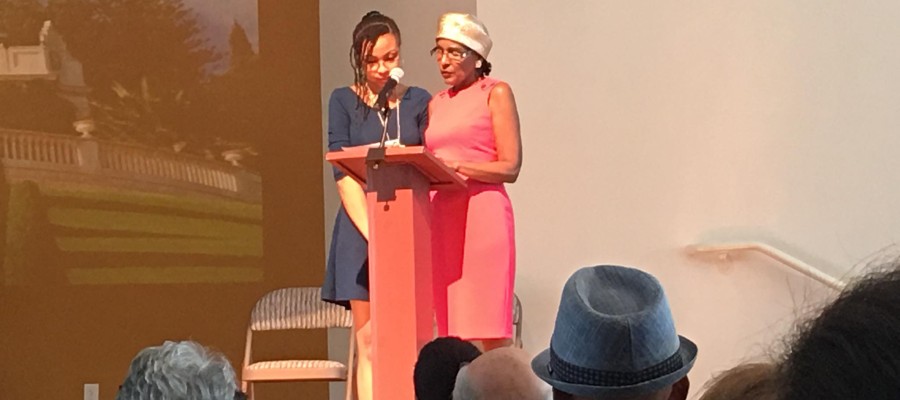
“In life, Black voices are not heard,” Barbara says. “There is a hierarchy of who matters.”
She refers to the lyrics by legendary blues singer Big Bill Broonzy referencing Jim Crow: “If you’re white, you’re all right. If you’re brown, stick around. If you’re Black, stay back.”
And, Barbara says, “women didn’t matter” and “kids didn’t matter” because, as the adults used to say, “children are to be seen and not heard.” So, growing up as a poor, dark skinned, Black girl, she often was not heard or valued.
“When I could write the poetry, at least I would listen to myself,” she says. “I would honor my own voice even if others didn’t honor my voice. I realized at one point, maybe I can’t change other people. Maybe they still won’t care about me, but I’m going to care about me. I’m going to hear what I’m saying. Even if I’m the only one that ever hears and sees the poem, at least I acknowledge the value of what I was trying to share.”
It wasn’t until she was 12-years-old that she felt encouraged to share her poetry with others. It was at the time when most people of African descent in the United States were called colored, or Negro, and every label that Black people were given was often used in a derogatory way.
But when James Brown’s song, “Say It Loud — I’m Black and I’m Proud,” came out, my mother decided that she wanted to own the name “Black” and be proud of it. So, she created signs to pin on her fellow students’ shirts that said, “Call Me Black” and passed them around to all the Black kids in her school, whose families had temporarily migrated to where she lived in New York to pick crops, to wear in protest. The white faculty would ignore them and roll their eyes in response. But when all the migrant Black children left at the end of the season and it was just my mother that was left wearing the sign, her white teacher snatched off her sign and said, “Enough of that nonsense.”
Barbara says, “I was so full of anger and resentment…It wasn’t about them. It was about me. Why can’t you respect me enough to call me what I want to be called? I think I got the most disgusted, angry, indignant. And that was boiling in me, and poetry was the only vessel out…As I say, the ink is my tears.”
RELATED: Barbara Talley’s Poetic Approach to Racial Unity
So, she wrote a poem to express her thoughts and feelings about race and handed it to her teacher. And to my mother’s surprise, her teacher finally understood and said, “OK, I’ll call you Black.”
“It made a difference,” Barbara says. “When I put the same kind of sentiment in poetry, somehow it became art…she [my teacher] saw the artistic value in it.”
“Perhaps these poetic words are our gems,” Barbara explains, “because, as the Bab, the forerunner of Baha’u’llah, said:
‘Treasures lie hidden beneath the throne of God; the key to those treasures is the tongue of poets.’
She adds that this “shows you the closeness of the poets to divinity. And we’ve been gifted to use our words to bestir people, to wake them up, to make them think, to make them feel. We can bypass that amygdala. We can bypass the prefrontal cortex. It just goes to the heart.”
Reflecting on Poetry’s Healing Power
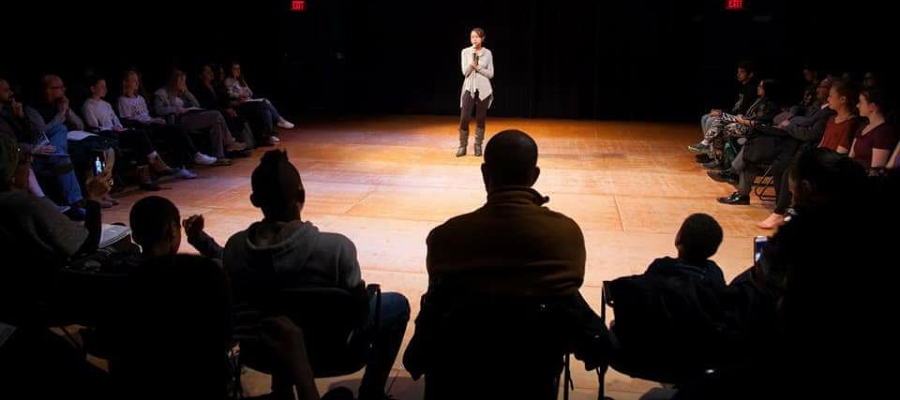
As an educator and community builder, Andréana gives writing workshops in prisons and at a recovery safe home for women who have been sexually abused and trafficked. She says that when she gives them a writing prompt or a piece of poetry to reflect on, it “unlocks something inside of them. I’ve seen the light come on in their face, and then they pour out all of this hidden experience that they never felt that they could maybe share before.”
She explains that although poetry can’t cure society’s ills, it can help lead to each individual’s healing. And she is always honored to be “given the gift of someone’s pain.”
As Barbara, who is also an author, keynote speaker, and diversity trainer, says, “The poet can take you into their world…It’s like a space where you’re invited into.”
“Poetry is as close as we can humanly get to divine inspiration,” Andréana says. “It is that voice that is our deepest cry of the soul, and when we unlock that in ourselves [and share our poetry with others] …it definitely has an effect on somebody else, and they may feel more apt to share their own heart cry. And when we’re vibrating and relating at that level, the veils burn away, and then I’m not seeing all the things that separate us. I’m seeing…this is how we’re connected. This is how we’re human together. These are our struggles, but also this is the beauty that we have been born to share and to give voice to.”
As you can see, we all had different backgrounds, upbringings, trauma, and experiences, and yet, we were all healed by the same spiritual medicine. As my mother says, the ink became our tears. This really speaks to how powerful and universal poetry is to empower voices, connect hearts, bridge barriers, and soothe, as Andréana says, the “deepest cry of the soul.” Poetry allowed each of us to take the pain in our hearts and turn it into art.



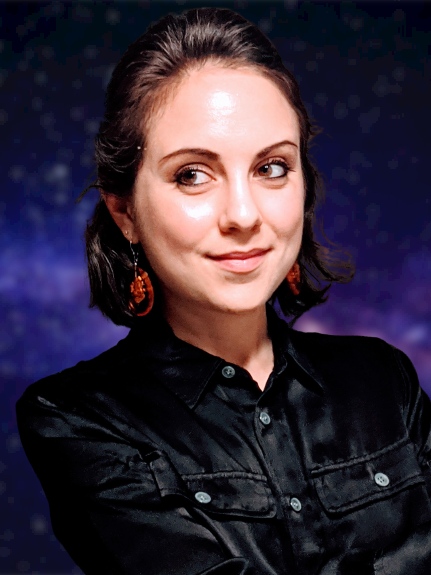
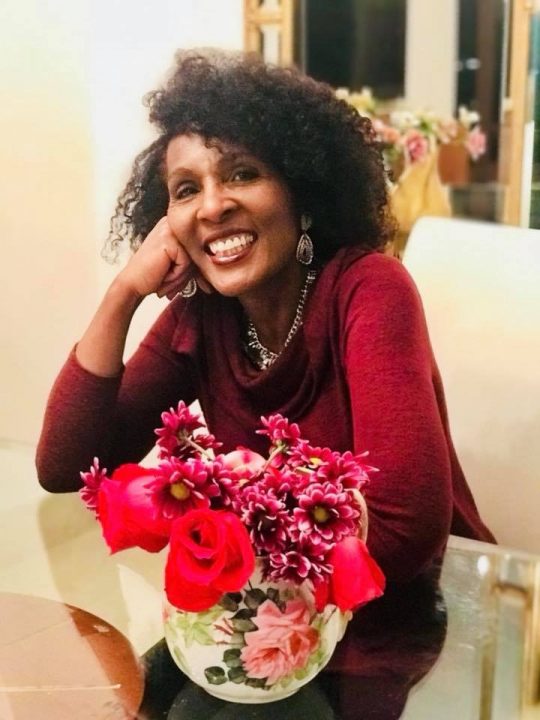

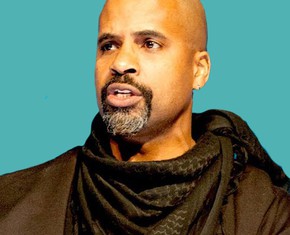

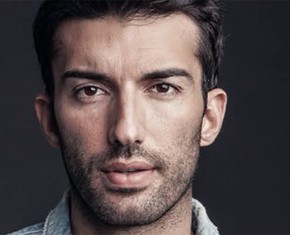









Comments
Sign in or create an account
Continue with Googleor